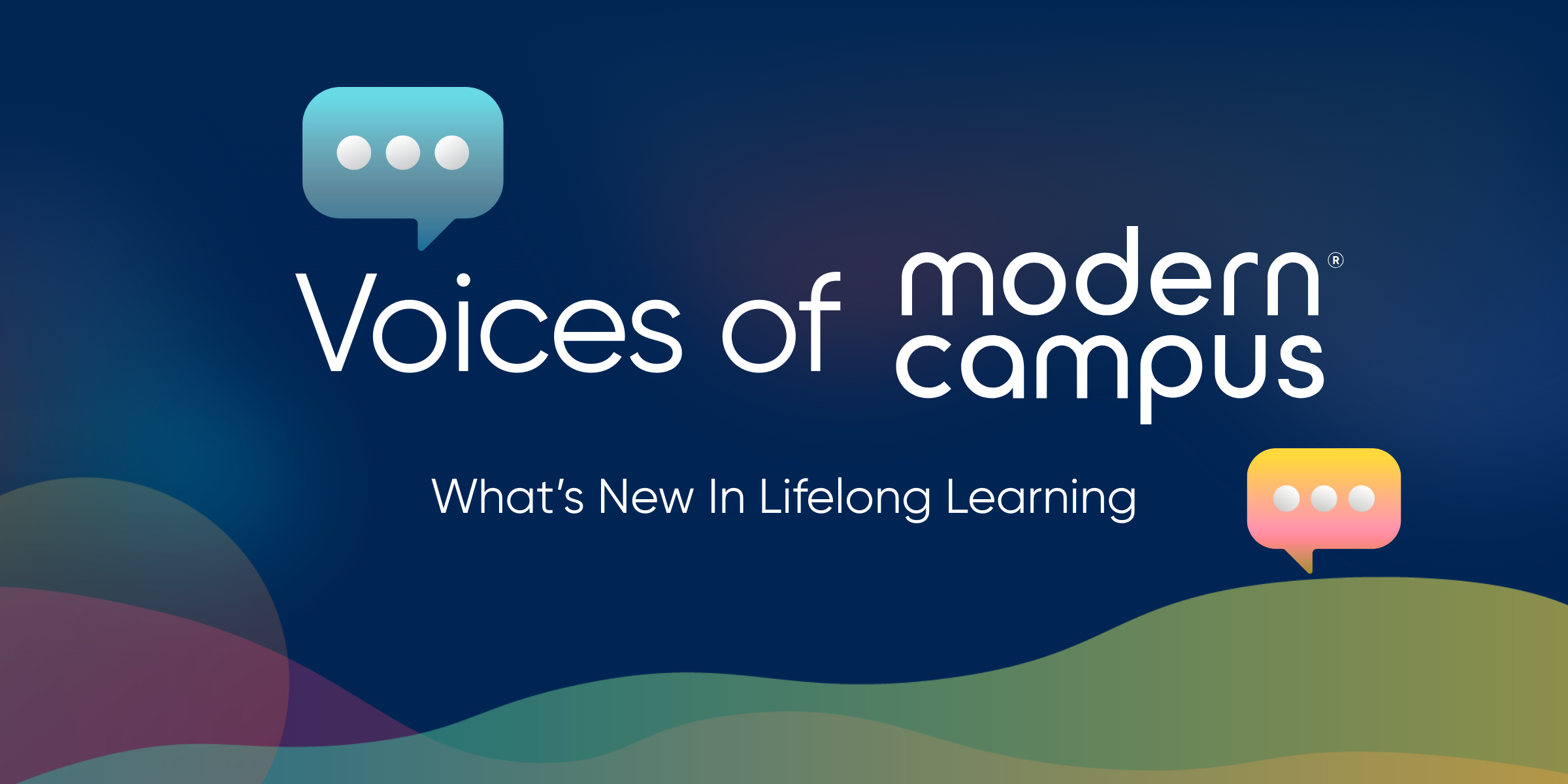How the Role of the Registrar Has Evolved: 5 Perspectives
The role of the registrar has been changing for the past few decades.
The modern registrar is a lot more than a glorified clerk, behind-the-scenes record keeper or policy enforcer.
“Historically, the registrar’s role is defined as duty-based, obligation-driven and morality-structured. A role often characterized by getting data out timely, sharing data ethically, speaking only when asked and listening to act and not react... But this has changed.” — Carolyn Gentle-Genitty, Assistant Vice President for University Academic Policy at Indiana University
Modern Campus, in partnership with AACRAO, conducted a study entitled The Modern Registrar: Reflections from the Field. The study analyzes how the role, focus and responsibility of the modern registrar have been evolving in recent years. It highlights how the modern registrar holds a unique position in an institution by having the ability to influence academic affairs and student engagement policies, practices and technologies.
The study is based on a survey and follow-up roundtable discussion with nine registrars from colleges and universities across America. This blog post is a compilation of some of those registrars’ perspectives on the role of the modern registrar as published in the The EvoLLLution.
What is the modern registrar?
Here’s how five modern registrars define the modern registrar.
An Insider
It’s difficult to define the modern registrar in one word. Many modern registrars use words like collaborator, advocate, change-maker, guardian, liaison or partner. Carolyn Gentle-Genitty, Assistant Vice President for University Academic Policy at Indiana University defines the modern registrar as an insider.
“If I had to give a title to the new registrar, I would call it an insider. They are informed, nimble, systemic, inclusive, data-oriented, equipped and responsive. They are poised for all academic conversations and to help the institution value data and student experiences and be truthful in advertising.”
Provider of Influential Service
Heather Bjorgan, Dean of Enrollment Management at Black Hawk College highlights that technology has enabled the modern registrar to provide influential services to students, faculty and administration.
“The registrar’s role has evolved from primarily a record-keeping entity into more of an influential service office. And technology is what has driven that course through its evolution. By incorporating technological advances, the registrar is able to provide increased service to students, faculty and administration. Information technology, where it’s aligned really well with the institution’s needs and organizational structure, could be a powerful tool.”
Driver of Positive Change
Michael Lorenz, Vice President of Strategy and Academic Operations at Purdue University Global emphasizes the modern registrar’s unique position in an institution to drive positive change and action.
“A registrar is in a position uniquely suited to both positive action and change in an institution … As such, the thoughtful registrar will observe broader patterns earlier than most, and the responsible registrar will seek to drive positive change based on that. So, the registrar’s social mission begins with acknowledging their obligation to drive positive institutional change, not merely to protect long-held policy.”
Guardian of Data
Rod Parks, University Registrar, Assistant Vice President, and Assistant Professor at Elon University equates the modern registrar’s office to an IT division.
“These days, I often equate modern registrars’ offices to an IT division more than the traditional processing offices we were in the past. These days, we are asked to provide an immense amount of data to faculty, staff and students, as well as innovations and initiatives. How we store data, report, keep it accurate and connect it to dozens of disparate systems are key components we often see registrar’s offices handle.”
Enforcer of Policy and Propagator of Innovation
Michelle Newman, Associate Provost and University Registrar at American Public University System explains how the registrar’s office propagates innovation and student centricity.
“They are the enforcers of the law, policy, the university. However, what people forget is that a lot of innovation comes out of the registrar’s office. And because of that, I really believe that student-centricity can start there. While we are the enforcer, it’s also our job to make sure we are maintaining the academic records and giving that student what they need.”
How can higher ed institutions leverage the modern registrar’s expertise to be student centric?
Given the breadth and depth of responsibility, knowledge base and access to data, the modern registrar can help an institution become truly student-centric.
Download our white paper to discover how your college or university can leverage the registrar’s expertise to meet modern students’ expectations.
Empowering Registrars to Meet Modern Learners’ Expectations
How Modern Registrars Can Enable Higher Ed Institutions to Become More Student Centric
Last updated: November 3, 2022



